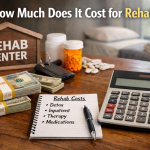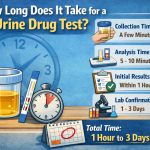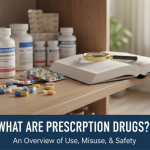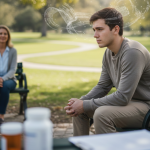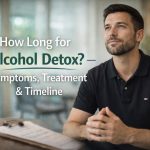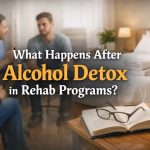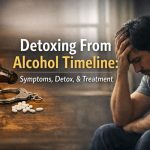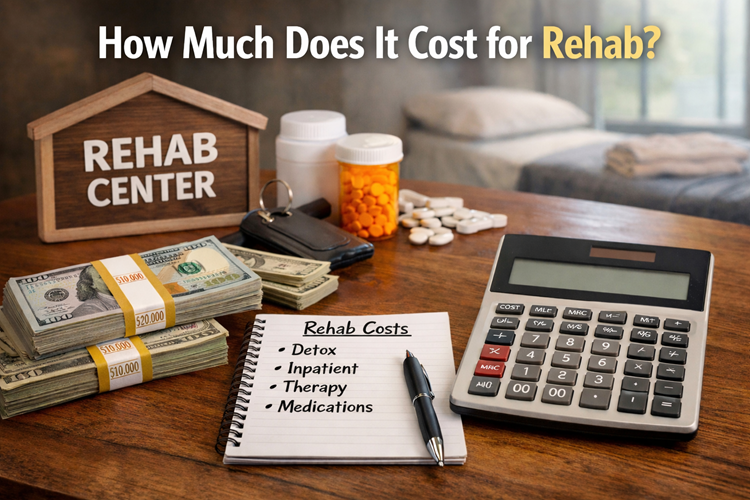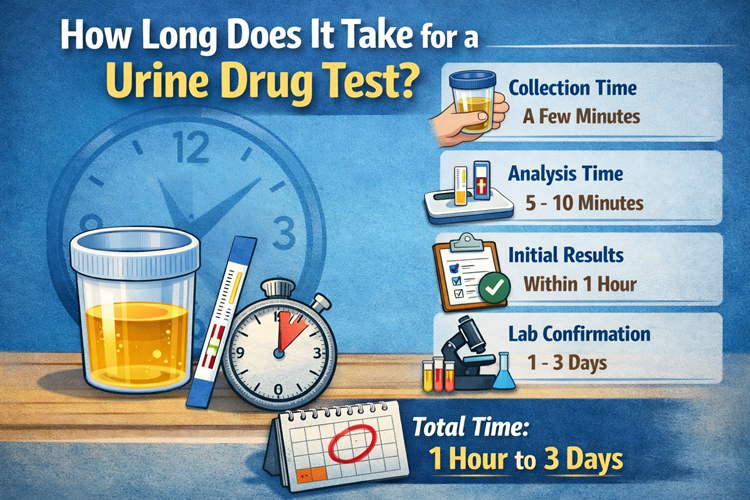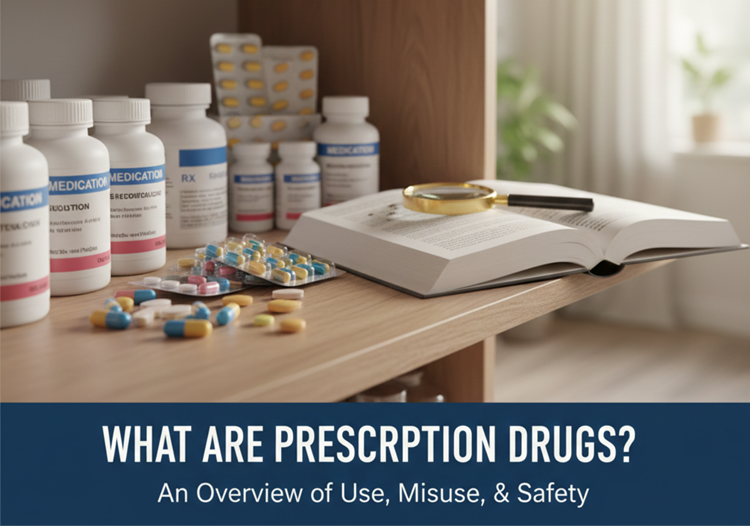Many people in the United States and around the world live with substance use disorder (SUD). Substance abuse and addiction are complex conditions. Many factors can contribute to SUD, including environment, behaviors, mental health, family history, and more.
People living with SUD require comprehensive treatment programs to address the complex roots of this condition. Comprehensive treatment programs use evidence-based therapies to address substance use disorder.
This article will explore what evidence-based addiction treatment is and where to find it. You will learn:
- What evidence-based therapies are
- What treatments are effective in treating SUD
- Where to find evidence-based addiction treatment in Florida
If you or someone you love lives with SUD, you are not alone. Find comprehensive, effective treatment at Solutions Healthcare. Learn about our programs or schedule your first appointment by contacting our intake team today.
What is Evidence-Based Treatment?
Evidence-based addiction treatment means using methods and therapies that have been scientifically tested and proven to help people recover from substance use disorders. Rather than relying on guesswork or unproven ideas, these treatments are backed by research and real-world results.
Not only are evidence-based treatments backed by real results, but they’re also designed to be tailored to each person’s needs rather than relying on a one-size-fits-all approach.
Evidence-Based Substance Abuse Treatment: What to Expect
People who live with alcohol use disorder (AUD), opioid use disorder, or other forms of substance use disorder (SUD) require comprehensive treatment. Treatment programs utilize a combination of evidence-based therapies to address the roots of addiction.
Here is an overview of some evidence-based therapies commonly used in addiction treatment.
Medication-assisted treatment (MAT)
Medication-assisted treatment (MAT) programs utilize FDA-approved medications to help people manage withdrawal symptoms and detox safely. These prescription medications may block the effects of drugs. This can reduce cravings and other withdrawal symptoms. They also ensure safety and help people stay on track during the detox process.
Common MAT program medications include:
- Acamprosate
- Buprenorphine
- Disulfiram
- Naltrexone
MAT programs typically include other therapies that support lifelong addiction recovery. These may include behavioral therapies, counseling, education, and more.
Individual counseling
Individual counseling helps people explore and understand their thoughts, feelings, and behaviors in new ways. People work one-on-one with a licensed mental health practitioner. During sessions, they may identify and treat mental health conditions, learn new skills, and work toward other goals related to recovery.
Family therapy
Family therapy allows entire family systems to learn about addiction and recovery. Together, family systems learn to process emotions, communicate, and work toward common goals more effectively. Family therapy can improve the health of the family system, creating a healthier environment that supports long-term addiction recovery.
Group therapy
Group therapy and support groups can help reduce guilt, shame, and isolation in recovery. People learn from each other and develop healthier coping skills. 12-step groups and other forms of group support can be an essential part of a person’s aftercare plan and long-term recovery.
Relapse prevention education
People in recovery must work to identify and manage their relapse triggers. During treatment, people may engage in education about addiction, recovery, and relapse prevention. They may also identify strengths and connect with community resources that support their recovery.
Participating in this type of education can reduce the risk of relapse. It can also help people recover faster after experiencing a relapse.
Motivational interviewing (MI)
Motivational interviewing (MI) is a popular, effective therapeutic intervention. This type of therapy can identify and reduce ambivalence related to addiction recovery. It can be beneficial for people who are not fully committed to recovery.
Motivational enhancement therapy (MET)
Motivational enhancement therapy (MET) is an evidence-based therapy commonly used in addiction treatment programs. People work with licensed mental health providers to identify and increase their motivation to change. Together, clients and counselors work to develop recovery plans that support long-term recovery.
Contingency management (CM)
Contingency management (CM) is an evidence-based behavioral therapy. It is proven to reduce high-risk behaviors, including substance use. CM rewards people for reaching recovery milestones or participating in recovery-related activities. For instance, someone may get a gift card or a treat for having a clean drug test or attending meetings.
Cognitive-behavioral therapy (CBT)
Cognitive-behavioral therapy (CBT) is an evidence-based form of talk therapy. It can help people explore the link between their thoughts, actions, and emotions. People learn to identify harmful behaviors and change deep-seated patterns.
Dialectical behavioral therapy (DBT)
DBT is an evidence-based form of talk therapy. It can help reduce harmful behaviors, including substance use. People learn new coping skills to help them manage challenges without resorting to destructive behaviors. They may develop better resilience and mindfulness to navigate stress without substance use.
Experiential therapies
Experiential therapies allow people to access subconscious thoughts related to drug and alcohol abuse. New ways of thinking can open up learning and help people process emotions differently. Some examples of experiential therapies include:
- Animal-assisted therapy
- Art therapy
- Dramatic therapy
- Music therapy
- Nature therapy
- Play therapy
Experiential therapies can be especially helpful for people who struggle to express thoughts verbally.
Contact the Solutions Healthcare specialists to learn more about these and other evidence-based treatment approaches.
Find Evidence-Based Addiction Treatment in Florida
At Solutions Healthcare, we believe that lasting recovery starts with care you can trust. That’s why we use evidence-based treatment. Our comprehensive approach is backed by research, not guesswork, and our care plans are personalized to each client’s unique needs.
If you or a loved one lives with substance abuse or addiction, you are not alone. Find effective treatment options, support, and recovery resources at Solutions Healthcare. Contact our intake team to explore our programs or to schedule an intake appointment.
References:
- Science Direct: What Is Evidence-Based Treatment?
- National Institute of Health (NIH): Evidence-based practices for substance use disorders







